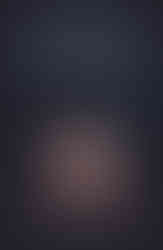10 Questions with Eugen Bacon
- Nikky Lee

- Nov 7, 2020
- 4 min read
Updated: Oct 31, 2023


Eugen Bacon is African Australian, a computer scientist mentally re-engineered into creative writing. She’s author of Claiming T-Mo (Meerkat Press) and Writing Speculative Fiction (Macmillan). Her work has won, been shortlisted, longlisted or commended in national and international awards, including the Bridport Prize, Copyright Agency Prize, Australian Shadows Awards, Ditmar Awards and Nommo Award for Speculative Fiction by Africans, and 2020 sees the release of two chapbooks, three collections and a novella.
1. Tell us a bit about yourself! Where do you call home and what do you write?
I am an African Australian living in Melbourne. I am a mother, an artist, a scholar, a writer, a reader. I am a sum of parts. I am many, betwixt, a fusion of cultures. I am the self and other. I write across forms: short story, poetry, novels, nonfiction. I write across genres: in a spectrum of literary speculative fiction.
2. What drew you to that particular style and genre?
I love the fascination of a different kind of storytelling. This is how I fell into speculative fiction that helps me explore my curiosity about myself and the world. In speculative fiction I can write the kind of story only hindered by my mind and how far it can go. A bit of the rebel in me revels in resisting the parameters of traditional genre fiction.
3. What’s your best known work?
Claiming T-Mo by Meerkat Press is my debut literary speculative fiction that was the creative artefact of my doctorate in creative writing. I also have a special affection for Writing Speculative Fiction by Macmillan, which was the sister book to Claiming T-Mo, being the outcome of the dissertation. Both got spectacular reception from readers and reviewers—for this I am grateful.
4. What inspired you to write it?
I’d always been curious about stories-within-a-story, which is what makes Claiming T-Mo. I’m most comfortable as a writer of short stories. In Claiming T-Mo, I hid vignettes inside vignettes. I wrote story by story, creating in a discipline already familiar. I also wanted to write about engaging with difference, otherness, where—despite its name—the women around T-Mo are the true heart of the story.
5. Tell us about your writing process. Are you a plotter, panster or somewhere in between? How do you research?
I’m so panster. When I write short stories, my writing is a search, a journey, a coming through… I often start with a skeleton, a general idea, and the writing shapes itself. Characters tell their story and the story’s ending astonishes me. But novels and non-fiction draw out the outliner—you must research these to be structured, credible and to avoid the runaway story. Google is a good friend, but sometimes you have to dig into scholarly books.
6. What’s the strangest or most interesting thing you’ve researched for your writing?
I’ve researched what happens in bodily functions when a person dies, how the body falls apart. I’ve researched how we orgasm during sex, the body’s biological responses during this immense and intimate pleasure. I love researching planets, which ones are habitable, inhabitable and why...
7. What’s the most personal story/scene you’ve written and why?
My short story ‘Still She Visits’ is still as painful to read as it was to write. I wrote it when my sister Flora died, where the writing was therapeutic. I talk about it in behind the story in Hadithi by Luna Press Publishing. A Migrant’s Story is also rather personal. It’s not speculative but is literary fiction that talks to the challenges of being a single parent who’s a migrant, away from the support network you might get from family and community in an African setting.
8. Who are your literary influences? In what way?
Toni Morrison. Ray Bradbury. Michael Ondaatje. Peter Temple. Authors as mentors who seduce me, magnetise me in the boldness of their writing that pays attention to mood, prose, characterisation—writing that listens to the playfulness of language. I’ve recently discovered Andrew Hook who’s a slipstream fiction writer. He’s completely mesmerised me in his blend of the literary and weird, and the depth with which he captures the human sentiment.
9. What books are on your bedside table right now?
Totally Andrew Hook, all his collections. But not on my bedside table—on my tablet, in our technological world. He should make me his publicist, find him at andrew-hook.com.
10. Last and most important, where can we find your books/stories?
Like a mother who loves all her babies, I’m super excited about my upcoming 2020 offerings:
Ivory’s Story by NewCon Press – black speculative fiction that’s a murder mystery and an origins tale
Black Moon by IFWG, a collection of graphic speculative fiction interspersed with prose poetry
The Road to Woop Woop and Other Stories by Meerkat Press – let this starred Publishers Weekly review labelling it as ‘complex, earnest, striking’ tell you about it!
Follow Eugen on these platforms!
Website (the best place to find links to Eugen's books, collections and anthologies!)
Liked this interview? Sign up to Nikky's newsletter for more interviews, articles and writing updates delivered straight to your inbox!













Comments